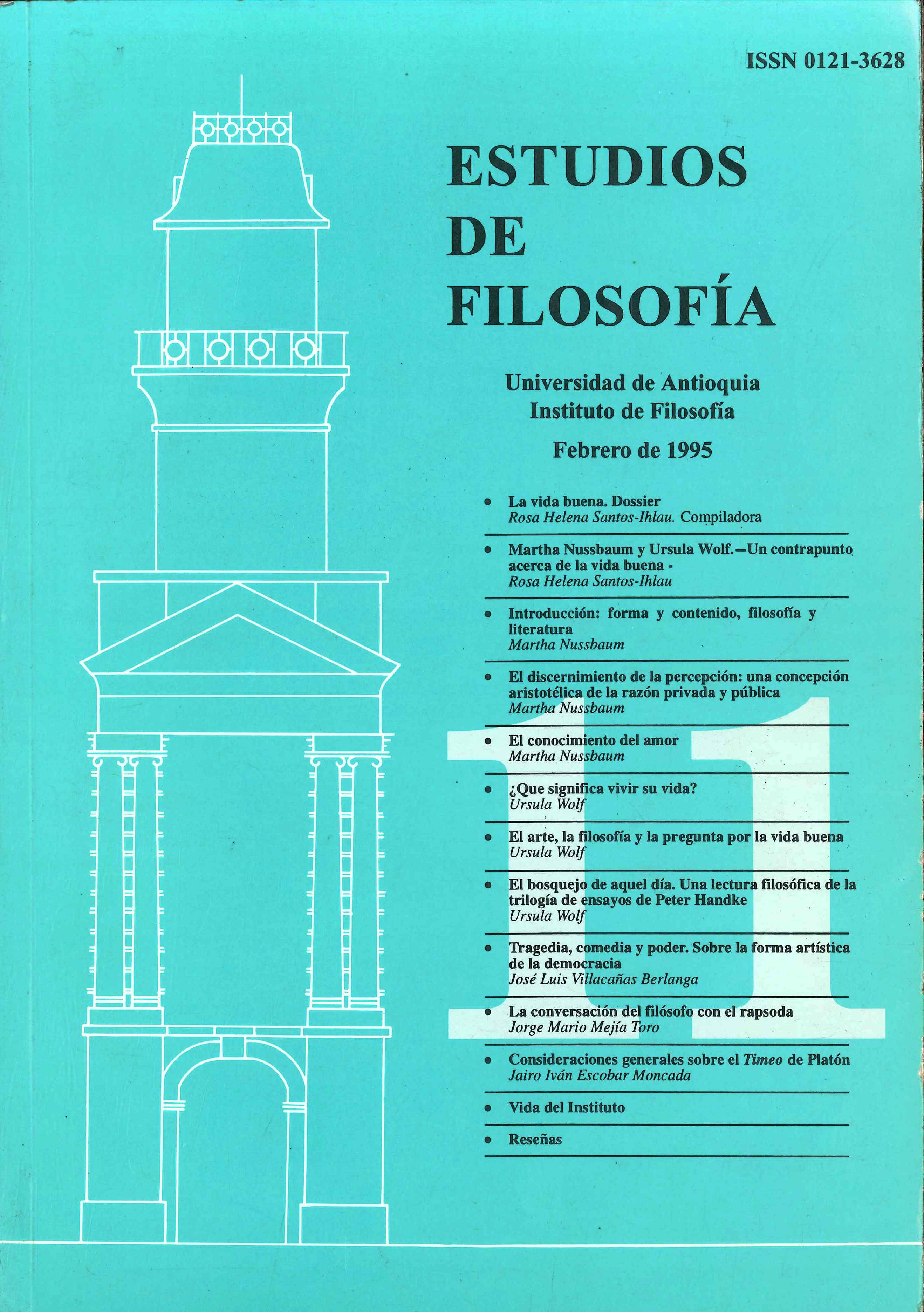Martha Nussbaum and Ursula Wolf. A counterpoint on "the good life"
DOI:
https://doi.org/10.17533/udea.ef.338799Keywords:
Ethics, aesthetics, edaimonw, reason, sensitivity, literature, philosopby, AristotleAbstract
This article lays forward a counterpoint between two philosophies that participate in the debate on the question of the good life, between two ambits: on the one hand ethical- traditionally tied to reason and on the other hand aesthetic - traditionally linked to sensitivity. An attempt is made to determine to what extent it may be possible or even advisable to overstep the limits, well-established within the strict confines of modemity, between both fields. Both conceptions, Martha Nussbaum's, in the name of literature and Ursula Wolf's in the name of philosophy send us back to Aristotle and accept in order to deliberate on the matter of the good life, the understanding that both literature and the work of art bring to bear is necessary. Notwithstanding, each adopts its own particular stance and this fosters a broad consideration of the current state of this debate.
Downloads
Downloads
Published
How to Cite
Issue
Section
Categories
License
Copyright (c) 1995 Rosa Helena Santos-Ihlau

This work is licensed under a Creative Commons Attribution-NonCommercial-ShareAlike 4.0 International License.
Authors who publish with this journal agree to the following terms:
1. The Author retains copyright in the Work, where the term "Work" shall include all digital objects that may result in subsequent electronic publication or distribution.
2. Upon acceptance of the Work, the author shall grant to the Publisher the right of first publication of the Work.
3. The Author shall grant to the Publisher a nonexclusive perpetual right and license to publish, archive, and make accessible the Work in whole or in part in all forms of media now or hereafter known under a Creative Commons Attribution-NoCommercia-ShareAlike (CC BY-NC-SA 4.0), or its equivalent, which, for the avoidance of doubt, allows others to copy, distribute, and transmit the Work under the following conditions: (a) Attribution: Other users must attribute the Work in the manner specified by the author as indicated on the journal Web site;(b) Noncommercial: Other users (including Publisher) may not use this Work for commercial purposes;
4. The Author is able to enter into separate, additional contractual arrangements for the nonexclusive distribution of the journal's published version of the Work (e.g., post it to an institutional repository or publish it in a book), as long as there is provided in the document an acknowledgement of its initial publication in this journal;
5. Authors are permitted, and Estudios de Filosofía promotes, to post online the preprint manuscript of the Work in institutional repositories or on their Websites prior to and during the submission process, as it can lead to productive exchanges, as well as earlier and greater citation of published work (see The Effect of Open Access). Any such posting made before acceptance and publication of the Work is expected be updated upon publication to include a reference to the Estudios de Filosofía's assigned URL to the Article and its final published version in Estudios de Filosofía.















